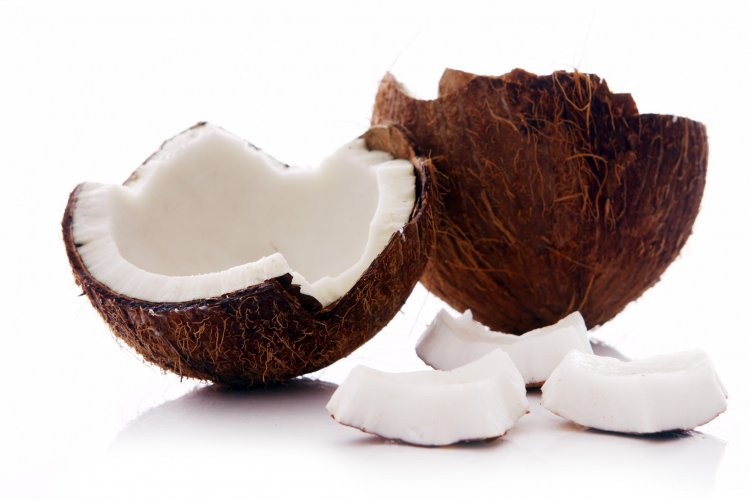The Versatile Coconut: A Fruit of Many Wonders
The coconut, derived from the palm tree known as Cocos nucifera, stands as one of nature's most versatile gifts, celebrated across cultures for its multifaceted utility and symbolism. Its journey from tropical oasis to global prominence underscores its significance and impact. Let's explore the coconut's diverse facets in depth.

The Amazing Coconut: From Tropical Treat to Versatile Treasure
Origins and Distribution
The coconut palm thrives in tropical paradises, basking in abundant sunlight, refreshing rainfall, and sandy soil. Native to Southeast Asia, the Pacific Islands, Africa, and parts of South America, its cultivation has circled the globe, influencing culinary traditions and economies worldwide.
Anatomy of a Coconut
This seemingly simple fruit boasts a surprisingly complex structure, with each part playing a vital role:
- Exocarp (Husk): The fibrous outer layer acts as a shield, aiding buoyancy during travel and protecting the precious cargo within. Harvested husks find new life in crafts, erosion control, and as eco-friendly alternatives to traditional materials.
- Mesocarp (Fibrous Layer): Beneath the husk lies the fibrous mesocarp, a resilient layer encasing the hard shell. Valued for its toughness, it's used in horticulture, composting, and even as a source of biofuel.
- Endocarp (Shell): The tough, woody shell acts as a fortress, safeguarding the coconut's inner treasures. Its durability makes it a favorite for handicrafts, furniture, and various industries.
- Endosperm (Meat): The white, fleshy meat boasts a delightful texture and flavor, packed with essential nutrients and healthy fats. A staple in tropical cuisine, it's enjoyed fresh, grated, or transformed into coconut milk, oil, or flour.
- Liquid Endosperm (Coconut Water): Nestled within young coconuts is a refreshing, nutrient-rich liquid celebrated for its hydrating properties and electrolyte content. Its popularity has soared, extending to sports beverages, health drinks, and delicious mixers.
Culinary and Nutritional Benefits
Coconut's culinary versatility shines in countless dishes, enriching them with its unique flavor and texture. Beyond taste, its nutritional profile offers a wealth of benefits:
- Healthy Fats: Abundant in medium-chain triglycerides (MCTs), coconut may support heart health, aid weight management, and even enhance cognitive function.
- Dietary Fiber: High fiber content promotes healthy digestion, regulates blood sugar levels, and keeps you feeling satisfied, contributing to weight management and reducing the risk of chronic diseases.
- Vitamins and Minerals: Coconut is a treasure trove of essential nutrients, including manganese, copper, selenium, and B vitamins, all crucial for metabolic functions, immune support, and overall well-being.
Health Benefits
Incorporating coconut into your diet is associated with numerous health advantages:
- Heart Health: Lauric acid in coconut may contribute to balanced cholesterol levels and potentially reduce the risk of heart disease.
- Digestive Wellness: The fiber content supports digestive regularity, alleviates constipation, and fosters a healthy gut microbiome.
- Immune Support: Antioxidants and antimicrobial properties may bolster the immune system, helping to combat pathogens and reduce inflammation.
- Hydration and Electrolyte Balance: Coconut water replenishes electrolytes, making it an ideal post-workout beverage or natural remedy for dehydration.
Beyond the Plate: Industrial and Cultural Significance
The coconut's usefulness extends far beyond the kitchen:
- Cosmetics and Skincare: Coconut oil is revered for its moisturizing, anti-inflammatory, and antibacterial properties, making it a natural favorite for skin and hair care.
- Textiles and Crafts: Coconut fibers are woven into ropes, mats, and textiles, reflecting traditional craftsmanship and offering eco-friendly alternatives.
- Symbolism and Rituals: Embedded in folklore and cultural practices, the coconut symbolizes fertility, abundance, and purification in many tropical societies.
Sustainable Practices and Challenges
While the coconut industry presents economic opportunities, it also grapples with sustainability and ethical considerations:
- Environmental Impact: Deforestation, monoculture farming, and habitat destruction pose threats to biodiversity and ecosystems.
- Fair Trade and Labor Practices: Ensuring fair wages, safe working conditions, and community development remains imperative for ethical coconut production.
In Conclusion
The coconut embodies a rich tapestry of cultural heritage, culinary excellence, and ecological significance. Its journey from palm to plate underscores its enduring appeal and adaptability. By embracing sustainable practices and ethical consumption, we can ensure the preservation of this invaluable resource for generations to come.
#coconut #health #nutrition #sustainability #culture #versatile #tropical #delicious
Disclaimer: The information provided in this article is for educational purposes only and should not be considered medical advice. If you have any health concerns or are experiencing symptoms, it is important to consult with a healthcare professional, such as a doctor or clinic, for proper diagnosis and treatment. Always seek the advice of your doctor or other qualified health provider with any questions you may have regarding a medical condition. Do not disregard professional medical advice or delay in seeking it because of something you have read in this article.
What's Your Reaction?





















